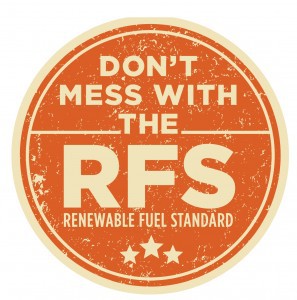A new study by ABF Economics found that the ethanol industry in Minnesota contributed $2.13 billion to the state’s gross domestic product in 2015. The report also found the industry generated $7.37 billion in gross sales for the same year. This in turn generated $1.6 billion worth of income for Minnesota households, supported 18,116 full-time jobs and contributed $93 million to state and local taxes. In addition, the ethanol industry created indirect jobs including jobs in retail trade, health care, natural gas distributors, banking and finance.The report was commissioned by the Minnesota Bio-Fuels Association.
 “The ethanol industry continues to be a significant contributor to Minnesota’s economy and is vital to continued economic growth in the state,” said Tim Rudnicki, executive director of the Minnesota Bio-Fuels Association.
“The ethanol industry continues to be a significant contributor to Minnesota’s economy and is vital to continued economic growth in the state,” said Tim Rudnicki, executive director of the Minnesota Bio-Fuels Association.
For the study, ABF Economics used the Impact Analysis for Planning (IMPLAN) economic model to construct a model of the Minnesota economy including the sectors that support the ethanol industry, the links between them and the level of economic activity.
John Urbanchuk, managing partner of ABF Economics said of the report, “Ethanol plants provide jobs and income not only for people who work at the plants, but also for businesses that sell ethanol plant supplies including Minnesota farmers who produce most of the corn used by Minnesota’s biofuel industry.”
The study found Minnesota’s 21 ethanol plants spent $2.05 billion in 2015 to produce 1.2 billion gallons of ethanol, 3.6 million tons of dried distiller’s grains (DDGs) and 198 million lbs of corn oil. In addition, the study reported the volume of ethanol produced last year, the study said, was 11 percent higher than 2014.
Also of note, the study found, “If all of the corn refiner’s oil produced by Minnesota ethanol plants was used as a biodiesel feedstock, it could produce more than 26 million gallons of biodiesel, or more than 40 percent of the biodiesel produced by Minnesota’s biodiesel plants.”









